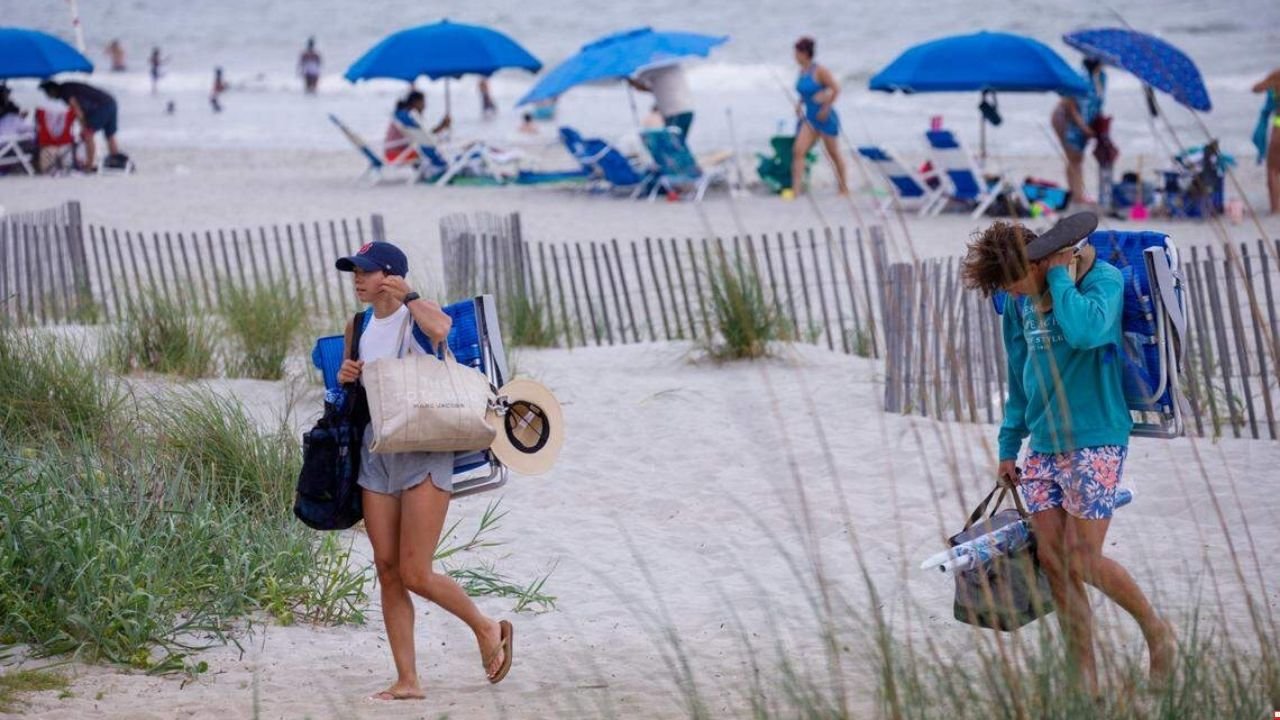Unique Beach Oddities Explained Along the Myrtle Beach Coast
MYRTLE BEACH, S.C. — From strange blobs in the surf to foul ocean smells after storms, the coastline of South Carolina’s Grand Strand has a history of unusual occurrences that both intrigue and sometimes alarm locals and tourists. Experts say these events are all part of the natural rhythm of the beach environment.
Sea Foam Can Pose Risks for Pets
One of the most common sights along Myrtle Beach is sea foam, which piles up on windy days. While it looks harmless, experts warn that it can harm pets if contaminated by pollutants or bacteria. Dog owners are urged to keep pets from licking or playing in the foam to avoid potential illness .
Brown Ocean Water After Heavy Rains
Another oddity occurs when the ocean water near the shore turns brown instead of blue. Scientists explain that heavy rain and storm runoff wash dirt and debris into the sea, temporarily changing the color. Though unusual-looking, the condition is usually harmless and clears as tides shift .
Mysterious Ocean Smells
After hurricanes or tropical storms, some beachgoers report the ocean smells foul or “off.” Marine scientists attribute the odor to natural sea compounds being stirred up, along with debris washed into the water during storms. While unsettling, the smell typically fades within days .
Swarms of Biting Flies
In fall, locals often notice an invasion of biting flies along the shoreline. These insects are drawn to certain weather patterns and can cause painful bites. Lifeguards recommend bringing repellant during peak swarm periods to avoid cutting beach trips short .
Beach Renourishment Closures
Not all oddities are natural. During renourishment projects, crews pump fresh sand onto eroded sections of the beach. These efforts close sections of the coastline for days or weeks, changing the look of the shoreline and reminding residents of the fragile balance between humans and the ocean .
Strange Blobs: Salps and Jellyfish
Visitors are often startled by clear, gelatinous blobs washed ashore, which resemble jellyfish but are actually salps—harmless creatures that drift with the current. At other times, thousands of real jellyfish, such as the Lion’s Mane, come ashore, delivering painful stings to unsuspecting swimmers .
Summer Hazards: Holes and Hidden Dangers
Digging deep holes in the sand may seem like harmless fun, but they can collapse and trap children or injure pedestrians. Officials also warn beachgoers to watch out for sharp shells, stingrays, and jellyfish tentacles hidden in shallow water .
Dark Spots in the Water
Perhaps one of the more alarming oddities are dark patches in the ocean. Lifeguards caution swimmers to avoid them because they usually signal large schools of bait fish. These schools attract bigger predators—including sharks—making them risky places to swim .
Have you ever encountered an odd or mysterious sight along Myrtle Beach? Share your experience at SaludaStandard-Sentinel.com.







